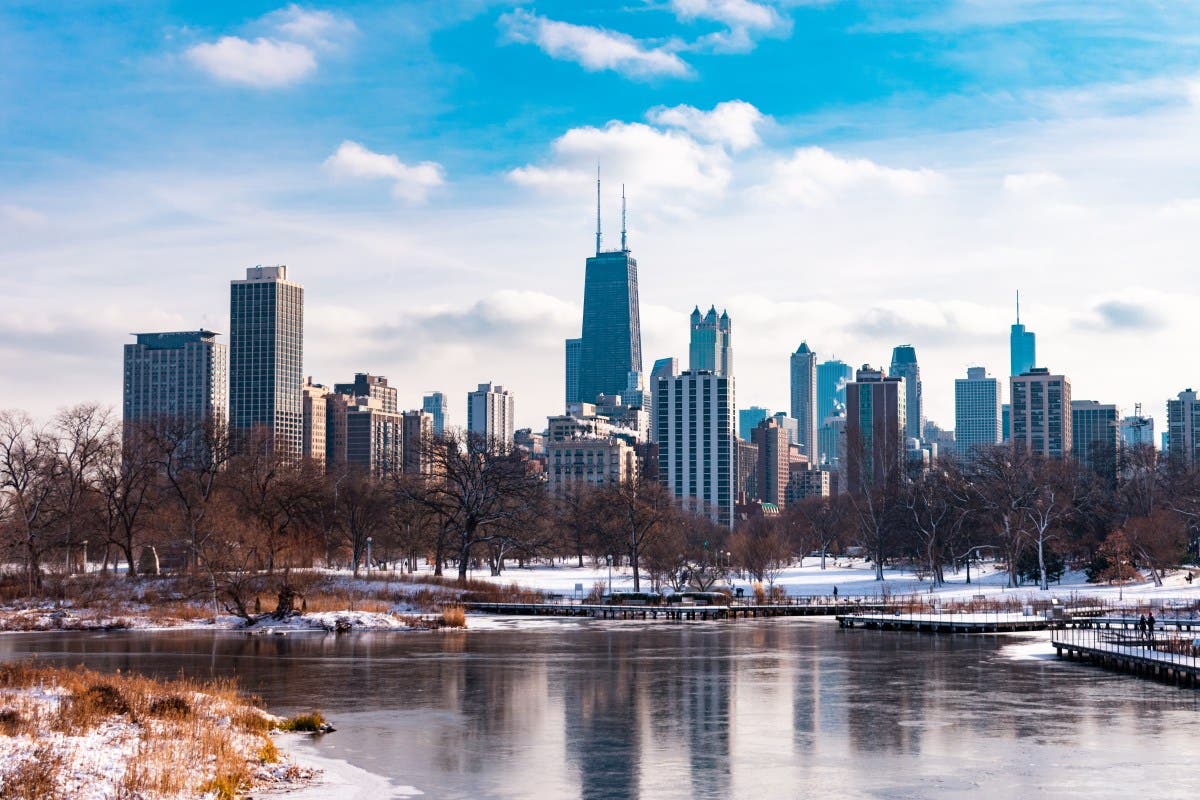An early-season Arctic blast has plunged much of the United States into extreme winter conditions, with more than 80 million people under freeze warnings and at least 13 states facing heavy snow and ice.
As temperatures plummet and heavy snow blankets much of the country, experts are urging Americans likely to be affected to take simple but crucial steps to prepare their homes for the extreme cold.
What happens?
Record low temperatures in the South, lake snow and strong winds have triggered widespread winter storm warnings, causing travel disruptions in several areas.
The National Weather Service has issued winter weather warnings for Tennessee, North Carolina, Virginia, Illinois, Indiana, Michigan, Pennsylvania, Ohio, New York, Kentucky, Wisconsin, Maryland and Maine. Residents in affected areas are bracing for dangerous conditions and travel restrictions that are expected to last until Tuesday.
Martyn Fowler, founder of Elite Renewables and residential HVAC systems expert, said Newsweek that households should act now to better withstand the cold conditions.
Here are the gadgets and hacks he thinks people should keep an eye on before a big freeze.
A humidifier to combat dry air
Cold air is notoriously dry, and keeping the heater on constantly will cause indoor humidity to drop even further. This can lead to cracked skin, a sore throat, and even a feeling of cold as dry air draws moisture from the body.
Why it matters: A humidifier restores moisture to the air, making your home feel warmer and more comfortable while protecting your health.
“A humidifier can definitely be helpful during cold snaps. The air in the room can become very dry if the heat is constantly on. This can lead to dry skin and irritated sinuses,” Fowler said Newsweek. “Low humidity can even damage hardwood floors and furniture if it's too low. Using a humidifier to keep the humidity between 40 and 60 will help you feel warmer and protect the home.”
Thermal curtains for heat retention
Many older homes have single-pane or drafty windows that allow heat to escape. Curtains made from insulating material can block drafts and retain heat.
Why it matters: Thermal curtains serve as an extra layer between your windows and the interior, helping to reduce heat loss – especially at night.
“I always recommend thermal curtains to customers with single glazing or older sash windows. They make a noticeable difference in keeping the heat in,” said Fowler. “Just be careful not to block the radiators with it, otherwise the heat will be trapped behind the fabric.”
Power banks for emergency charging
Winter storms can cause power outages, leaving homes without heat or communications.
Why it matters: Portable power banks help keep essential devices like phones charged so residents can contact emergency services or receive updates.
“Even a small device is useful for keeping phones charged when the power goes out. I would definitely recommend that if you live in a rural area,” Fowler said.
A portable replacement heater
If your central heating fails during a winter storm, you may be left without a reliable source of heat.
Why it matters: Portable space heaters can provide localized heat in small spaces, offering families a temporary solution while they wait for repairs.
“A portable space heater is a good replacement if your main heating system fails,” Fowler said. “It doesn’t heat the whole house, but it can relieve pressure on a room.”
Door draft excluder to seal out cold air
Unsealed gaps under doors allow cold air to enter and warm air to escape, forcing heating systems to work harder.
Why it matters: Blocking drafts with a simple air sealer improves energy efficiency and can make rooms feel several degrees warmer.
“Cold air tends to get in under doors, especially in older buildings,” Fowler said. “Blocking these drafts keeps the warm air inside and can make a room feel several degrees warmer without touching the thermostat.”
Bleeding radiators to maximize heat output
Over time, air can get stuck in the radiators, meaning they can no longer be heated up completely.
Why it matters: Venting radiators ensures even heat distribution and improves the overall efficiency of your heating system.
“That last one isn’t a gadget, but it’s something essential that a lot of people forget,” Fowler said. “Entrapped air increases the performance of the heating system and leaves cold spots at the top of the radiator. You can get more out of your boiler when the entire system is working properly.”
